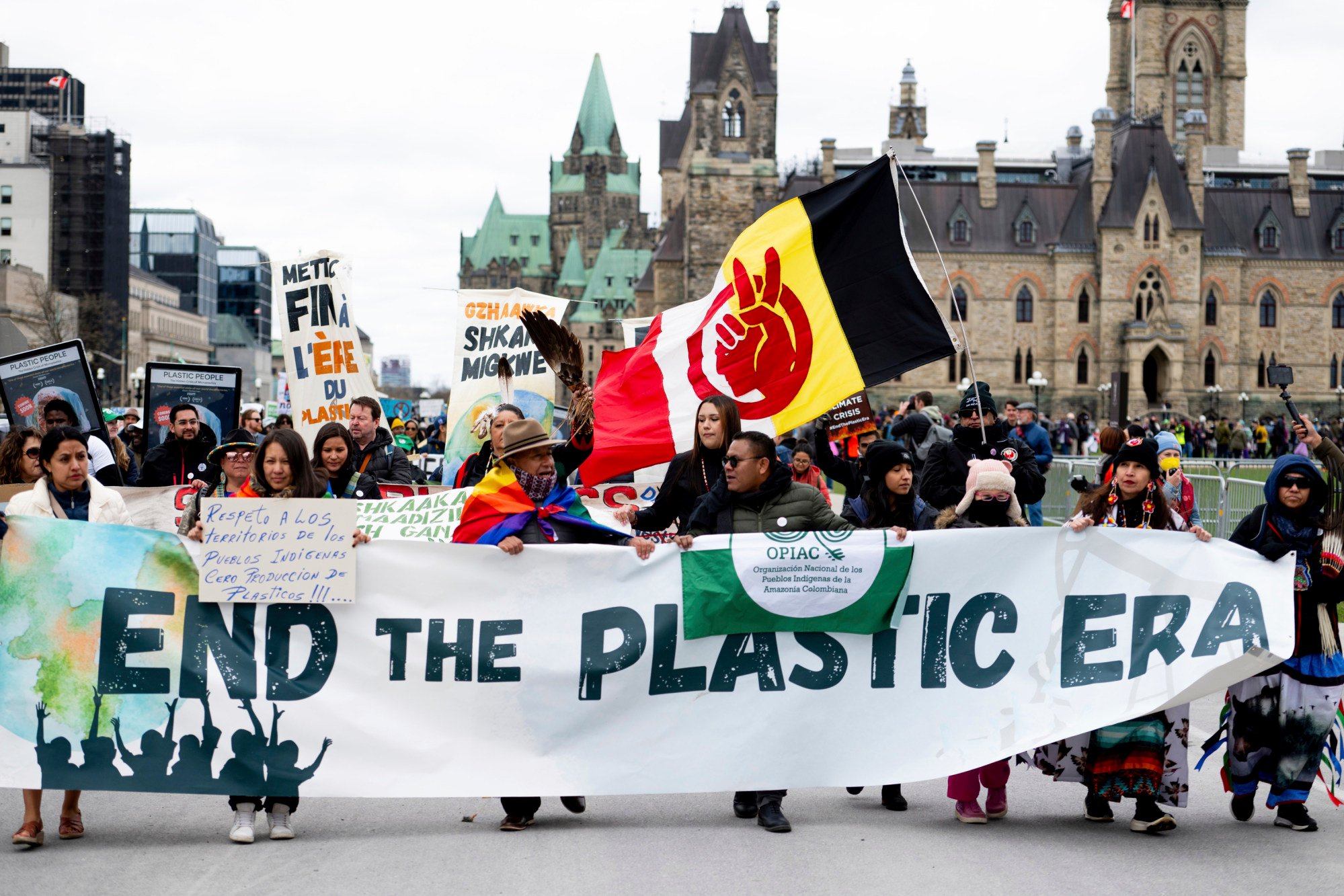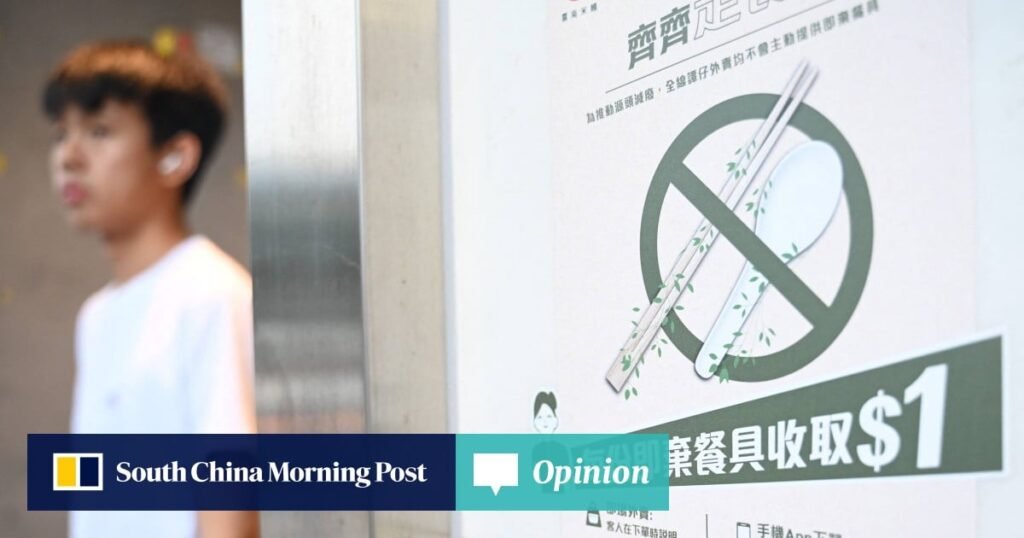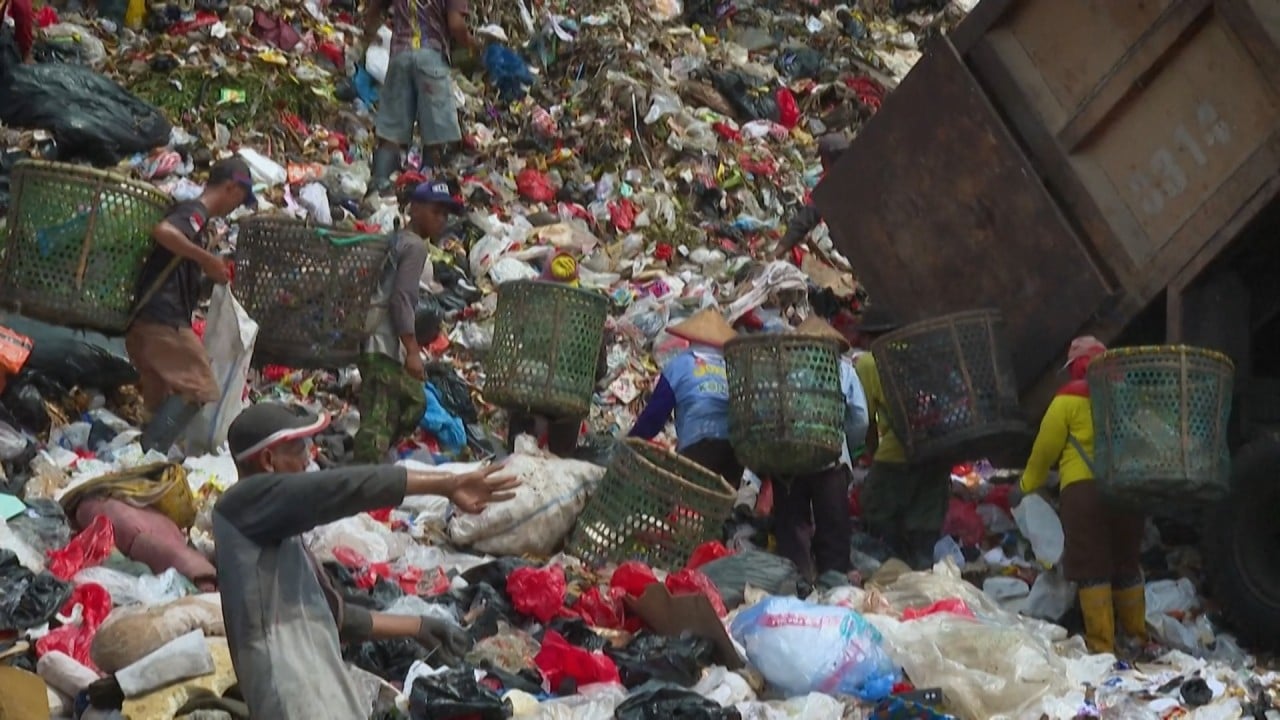But the material to think about is, if small, disposable products, with reusable alternatives aplenty, aren’t the first to be regulated, what else could be? has been spoiled by the use of plastics due to companies that provide single-use plastics. As a result, by 2022, Hong Kong’s daily plastic waste volume will reach a staggering 2,369 tons, with single-use plastics becoming the second largest part of Hong Kong’s municipal solid waste. It becomes.
To address the root of the problem, a throwaway culture, all sectors need to work together to reduce sources by increasing reuse and phasing out single-use items. To achieve this, it is necessary for all stakeholders to be aware of their social responsibilities, rather than relying solely on the efforts of customers.
A recent waste levy trial conducted by Greenpeace among 45 households found that almost 50 per cent of waste consisted of take-home single-use items and product packaging. The findings show that people often have limited choices and end up buying take-home or over-packaged items.
Implementing a waste levy scheme will require people to pay for the packaging they produce. However, it is essential to establish a producer responsibility system that regulates companies and encourages the reduction of packaging, especially plastic packaging, at the source. Such a plan could significantly reduce the use of unnecessary plastic packaging. This is very important as producers are responsible for minimizing materials and packaging during the production stage.
Embracing reuse initiatives should be a global policy trend. For example, chain restaurants can develop reusable systems for takeout containers. This approach reduces the burden of recycling on the public, while reducing the cost and pollution associated with producing recycled plastic containers.
The study found that rental reusable cup systems performed better than disposable cups in a variety of environmental impact categories. Each reusable cup reduces greenhouse gas emissions by 25%, water consumption by 37%, and human toxicity by 34%. Similar to Taiwan, chain stores such as beverage outlets, convenience stores, and supermarkets are required to provide cup lending and return services to customers.
Plastic pollution transcends geographic boundaries. Pollution within cities harms nature and people far away. Unfortunately, many residents remain unaware of this issue. The situation in Hong Kong is just the tip of the global iceberg.
Globally, per capita plastic consumption in the Global North is about four times higher than in the Global South. Additionally, the costs of plastic pollution are disproportionately higher in low- and middle-income countries than in high-income countries.
To address this crisis, leaders of 175 countries have voted to adopt a global treaty on plastic pollution, which is currently being negotiated in Ottawa. For the Convention to effectively combat plastic pollution, it must encompass measures that address the entire lifecycle of plastics, from extraction to production and disposal. Such a treaty would be an important victory for countries in the Global South that bear the brunt of the negative effects of plastic pollution.

But negotiations on a global plastics treaty in Ottawa are facing difficulties. Fossil fuel and petrochemical interests are hindering progress toward a treaty that adequately addresses the needs of countries in the Global South. Despite the challenges they experience from plastic pollution, some governments are reluctant to reduce plastic production due to concerns about losing investment.
Encouragingly, recent Greenpeace research shows that people around the world want a strong treaty that comprehensively tackles plastic pollution. Countries must not lose sight of the fact that a strong treaty benefits everyone. It is a matter of survival for communities in the Global South and for people around the world.
Leanne Tam is an activist with Greenpeace East Asia – Hong Kong
Marian Ledesma is a Zero Waste Campaigner with Greenpeace Southeast Asia – Philippines


